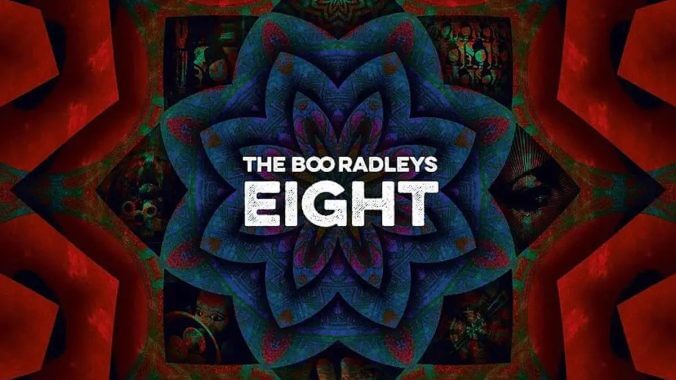On Eight, the Boo Radleys Haven’t Forgotten Their Britpop Roots
The band's second album since their reformation is uncomplicated, comfortable and a grand tour of their quintessential, distinct style

The position of the middle-aged rocker is tedious, maybe definitionally so. There’s a balance that must be struck between the youthful panache of your earlier years and the stubborn, yearning vapidness of the washed-up balladeer. It is a difficult line to tiptoe when you’ve been at it for thirty years—let alone after a 21-year hiatus—but I am happy to report that the Boo Radleys have walked it perfectly. Eight, the group’s second record since their reformation at the beginning of the decade, is a comforting, familiar slice of Britpop boisterousness, complemented with new sonic exploration and joyous congruousness.
Eight is varied in subgenre and instrumentation, but it carries a throughline of warmth—a self-awareness that revisits the foundational components of the band’s oeuvre. While Keep On With Falling—the band’s 2021 comeback album—received relatively positive reviews, muted mutterings of complaint swirled that the band had lost some of their edge. Eight, too, is a bit softer than one might have expected from the group in the early ‘90s, but perhaps their defanging is a natural part of their evolution. It’s a familiar trope, and not an inherently negative one; artists change and grow as their environments do. The Boo Radleys have entered a new iteration of their musical career, one more reflective and intentional than the last.
I ought to mention as a disclaimer that I will always have a soft spot for ‘80s/‘90s alt- and indie-rock, and the fact that its main proponents now mainly look like twinkling-eyed uncles. Call it fate, call it karma, call it having a dad who really loved summer afternoon car rides and R.E.M., but I’ve always found the genre cozy. It feels fitting, then, that Eight comes out just months before the 30th anniversary re-release of Giant Steps, the 1993 LP which saw the band step into their own. Some of the dance and reggae inspiration that made Giant Steps a landmark album is heard echoing through Eight, a charming internal homage to the band’s reformation.
The band’s instrumentals, of course, are as enjoyably unexpected as they always have been: the tracks are replete with brass, percussion and harmonics whose origins arise from the same hodgepodge of genres which made the Boo Radleys such a critical specimen in the first place. I’m 90% sure I heard a xylophone in there somewhere. On that note, many of the songs sound a little silly, but in a fundamentally pleasurable way. They don’t take themselves too seriously, the lovingly-crafted brainchildren of a band with nothing to prove anymore. The album basks in its own sonic landscape, an aural history of the group’s influences and metamorphoses through genre and time.
-

-

-

-

-

-

-

-

-

-

-

-

-

-

-

-

-

-

-

-

-

-

-

-

-

-

-

-

-

-

-

-

-

-

-

-

-

-

-

-








































